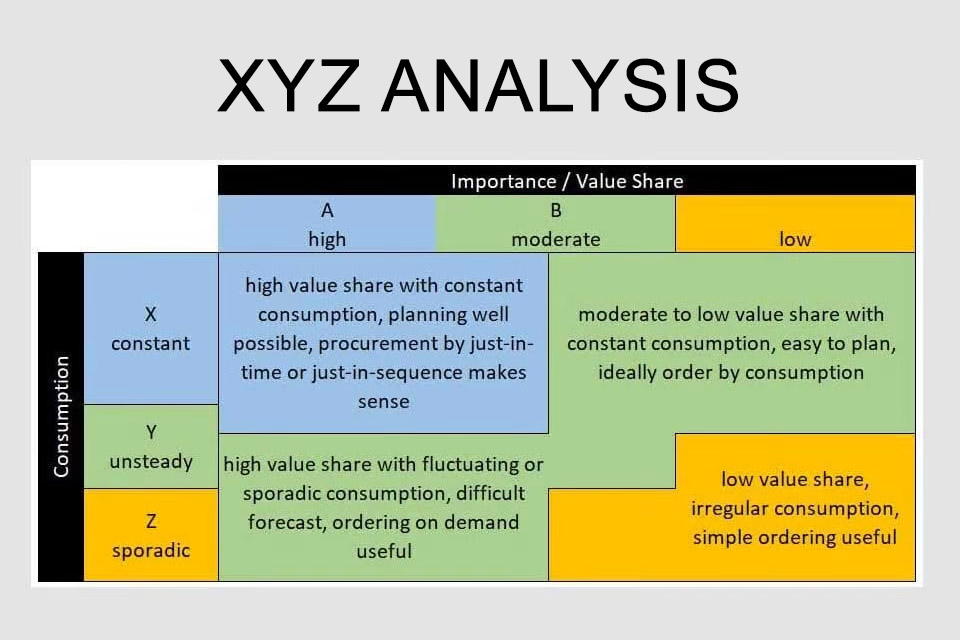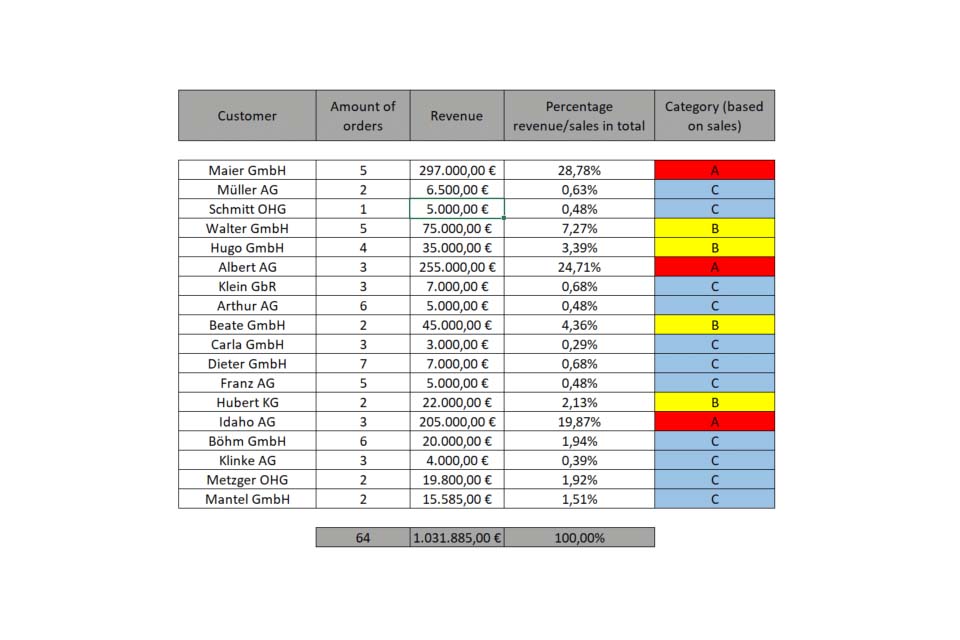What is XYZ Analysis?
Smartpedia: XYZ analysis is a three-step process in materials management that classifies goods, merchandise, services, etc. according to their consumption.
Classification of articles according to consumption
The XYZ analysis is a procedure in business administration or materials management in which articles – i.e. goods, services, etc. – are classified according to their regularity of turnover. Classification is based on past consumption values in three stages:
- X stands for constant consumption, i.e. products that are sold, used or consumed constantly.
- Y stands for strongly fluctuating consumption, e.g. for products that are sold, used or consumed most frequently due to seasonal factors, a trend or boom, or an event.
- Z stands for irregular consumption.
The findings of a XYZ Analysis
The findings of the XYZ analysis – also known as RSU analysis for regular, seasonal, unsteady – are important for stock planning, the timely production of articles or the procurement of goods. The classes are calculated using a coefficient of variation, which results from the mean value of the consumption and a standard deviation:
- For X usually a coefficient of variation is used from 0 to 25%,
- for Y between 25% and up to and including 50%,
- and for Z over 50%.
In addition, XYZ analysis makes it possible to combine withdrawal behavior over time (how often items are sold, used, or consumed within a specified time frame) and quantity fidelity – how high was the consumption per item call-off. This can result in statements such as X-X (the goods are regularly consumed in constant quantities) or X-Y (the goods are regularly consumed with strongly fluctuating quantities).
The combination of XYZ and ABC Analysis
The XYZ analysis is also performed in combination with the ABC analysis.
- The combinations A-X, B-X, C-X, A-Y and B-Y are suitable for just-in-time procurement. B-Y could also be procured via stock procurement.
- The combinations A-Z and B-Z are difficult to forecast, so that organisations have to find a compromise between expensive warehousing, costly ordering and the risk of delivery bottlenecks.
- The effort for C-Z should be minimised. Here, too, a compromise must be found between stock levels and procurement costs.
Notes:
If you like the article or would like to discuss it, please feel free to share it in your network. And if you have any comments, please do not hesitate to send us a message.
Here you will find additional information from our Smartpedia section:



